Taiwan’s officially-endorsed “Lego master” Huang Yen-chih has used more than 200,000 Lego bricks and spent three months to piece together an eye-catching landscape of Taichung’s famous Gaomei Wetlands. He also used 2,000 Lego Minifigures to create a replica of Taichung Intercontinental Baseball Stadium, conjuring up a brand-new toy experience.
To celebrate the opening of Taichung’s first authorized Lego store — the nation’s second — Lego Taiwan invited Huang to create a “Lego wall” of the city’s landscapes within the new Lego store, which is located in Taichung’s Top City department store. After a great deal of discussion, the city’s Gaomei Wetlands, which has been praised as one of the “Six Heavenly Realms of the World,” was chosen from among dozens of Taichung landmarks to be the store’s centerpiece Lego design.
Huang spent three months and used more than 200,000 bricks to create a landscape depicting the Gaomei Wetlands during sunset and employed a multi-colored layering technique to create the effect of a watercolor painting’s rendering of a golden sun melting into the night sky. Huang was even able to simulate the gradations of sunlight reflected on the water’s surface, as well as scenes of parents and children playing together, demonstrating that the humble Lego brick can be elevated to an art form.
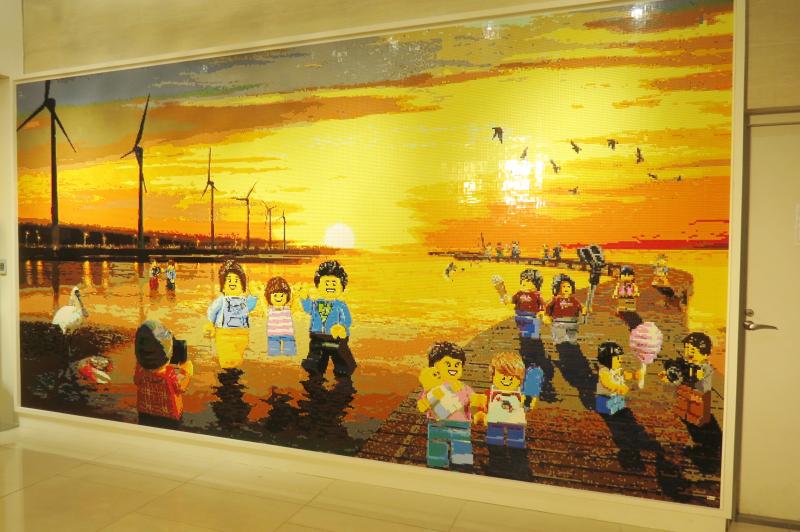
Photo: Su Meng-chuan, Liberty Times 照片:自由時報蘇孟娟
To recreate the atmosphere of Taichung Intercontinental Baseball Stadium full of players and spectators, Huang used more than 2,000 Lego Minifigures. The stands are packed full of enthusiastic baseball fans and there is a scoreboard made from Lego bricks, creating a unique and eye-catching model of the stadium.
(Liberty Times, translated by Edward Jones)
超吸睛!樂高認證大師黃彥智應邀利用逾二十萬片樂高,費時三個月拼出台中知名觀光景點「樂高牌高美溼地」,更運用兩千樂高小人打造台中洲際棒球場,玩出「玩具新視界」。
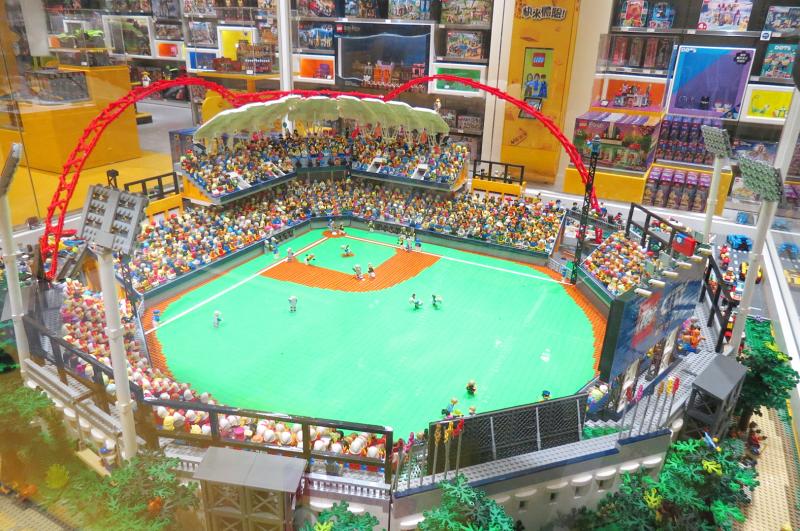
配合樂高全國「唯二」授權專賣店進駐台中,設在台中大遠百的中部首間樂高授權專賣店,也打造「台中限定」店裝特色,邀黃彥智以台中景觀設計樂高牆,幾經討論從數十個台中地景精挑細選後,選定享有「世界六大天空之境」讚譽的高美溼地作為台中店的店景主設計。
黃彥智費時三個月時間設計,利用超過二十萬片樂高積木,設計出「夕陽下的高美溼地」。利用不同色彩堆疊,完成如水彩渲染的黃金夕陽,加上倒映在溼地上的漸層光感,畫中並有親子遊玩場景,呈現樂高拼裝藝術。
此外,他另組設台中洲際棒球場,為呈現球場的爆滿運動人氣,更利用逾兩千個樂高造型小人偶打造,看台上湧入滿場的熱情球迷,加上計分板是用積木顆粒拼裝,特色積木造景也很吸睛。
(自由時報蘇孟娟)
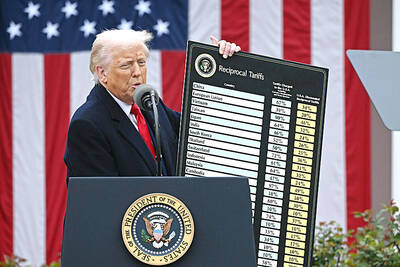
US President Donald Trump is taking a blowtorch to the rules that have governed world trade for decades. The “reciprocal’’ tariffs that he announced Wednesday last week are likely to create chaos for global businesses and conflict with America’s allies and adversaries alike. Since the 1960s, tariffs — or import taxes — have emerged from negotiations between dozens of countries. Trump wants to seize the process. “Obviously, it disrupts the way that things have been done for a very long time,’’ said Richard Mojica, a trade attorney at Miller & Chevalier. “Trump is throwing that out the window ... Clearly this is
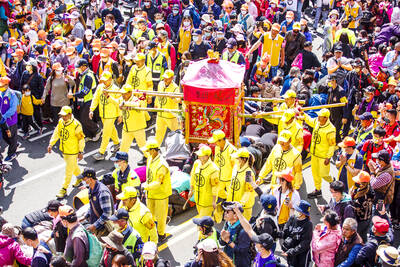
The Matsu pilgrimage is one of Taiwan’s most iconic annual religious events. This grand occasion is more than just a religious ceremony; it deeply reflects Taiwan’s history and culture. Originally, Matsu was the goddess of the sea, primarily responsible for protecting fishermen and ensuring their safe voyage. As immigrants brought Matsu worship to Taiwan, she gradually evolved into a deity overseeing health, business, and various aspects of life. In times of uncertainty, Matsu has become a vital source of spiritual comfort for the Taiwanese. The pilgrimage represents Matsu’s annual tour to inspect her domain, driving away evil and bringing
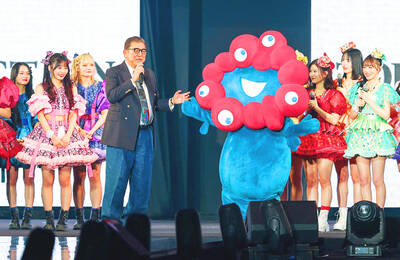
A: The World Expo 2025 is set to open in Osaka, Japan, on Sunday, with 158 countries and regions and nine international organizations participating in the event. B: Wow, what’s the theme this time? A: The theme is “Designing Future Society for Our Lives.” B: Do you want to go? How long will it last? A: It’ll run for 184 days, until Oct. 13. Maybe we can go to Osaka during summer vacation. A: 2025年世界博覽會預計週日將在日本大阪開幕,158個國家或地區及9大國際組織將參與盛會! B: 哇這次的主題是什麼? A: 主題是:「創造閃耀生命光輝的未來社會」。 B: 你想要去嗎?展出多久啊? A: 世博會共展出184天到10月13日,或許我們暑假時可以去大阪玩。 (By Eddy Chang, Taipei Times/台北時報張迪)
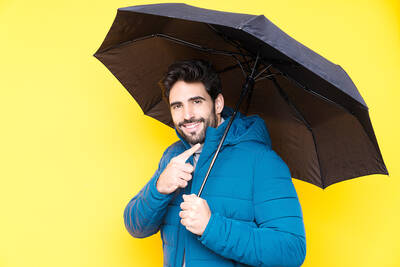
Dos & Don’ts — 想想看,這句話英語該怎麼說? 1. 我臥病三天。 ✔ I stayed in bed for three days. ✔ I kept to my bed for three days. χ I slept in my bed for three days. 註︰動詞 sleep 通常作「睡眠」解。例如:Usually we sleep eight hours a day. 「因病臥床」應用 to stay in bed 或 to keep to one’s bed. 2. 彼得容易傷風。 ✔ Peter is liable to colds (或to catch cold). ✔ Peter is subject to colds. χ Peter is easy to catch cold. 註︰easy 常用於事,可以說 English is easy to learn. 或 It is easy to learn English.,但不可以說 I am easy to learn English.。因為 easy 很少用於人,尤其用來指「容易」的場合。除非用在 an easy person 中,easy 在此意思是「隨和」。 另外,可以說 “It is easy to misuse the article.”